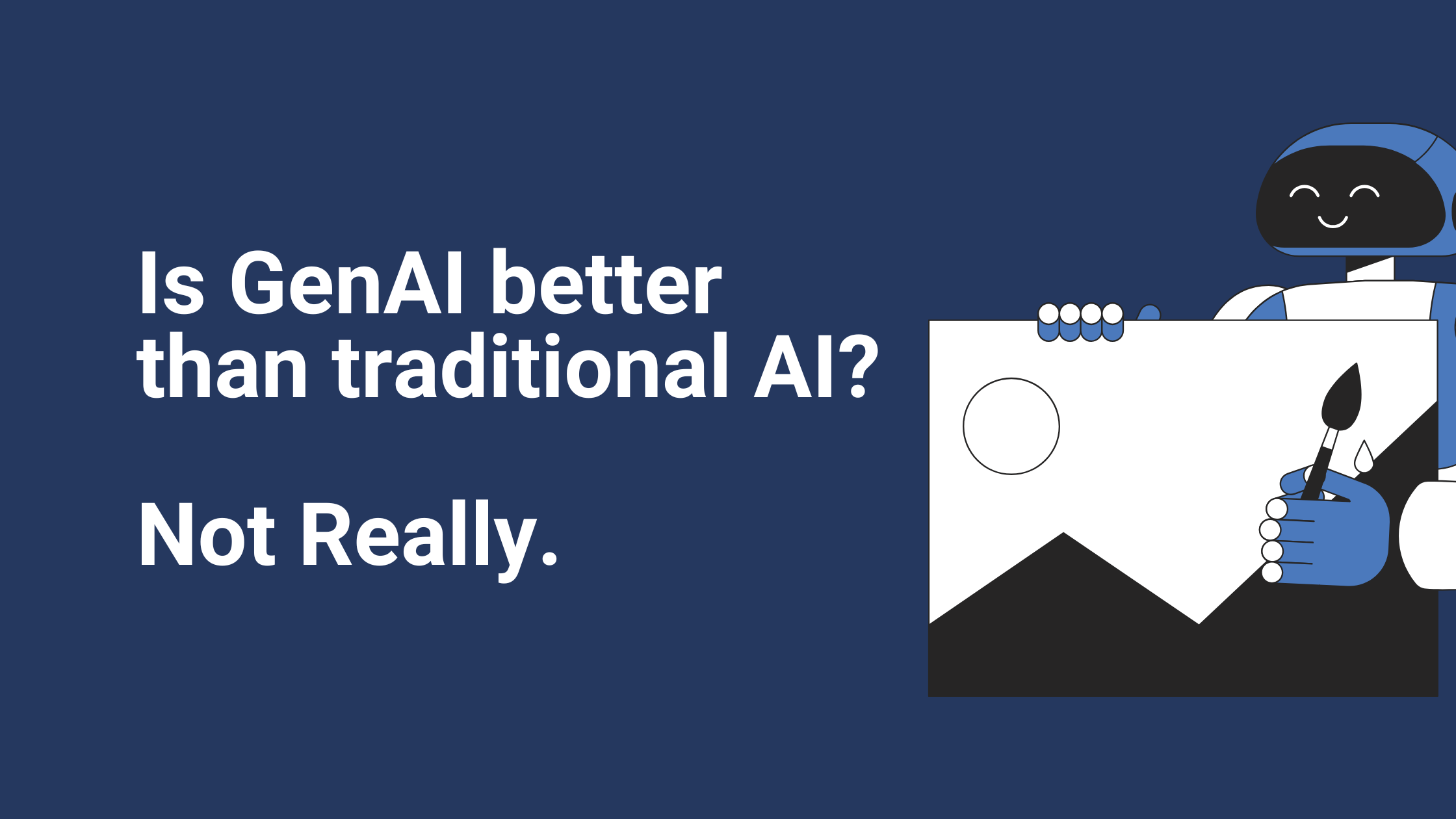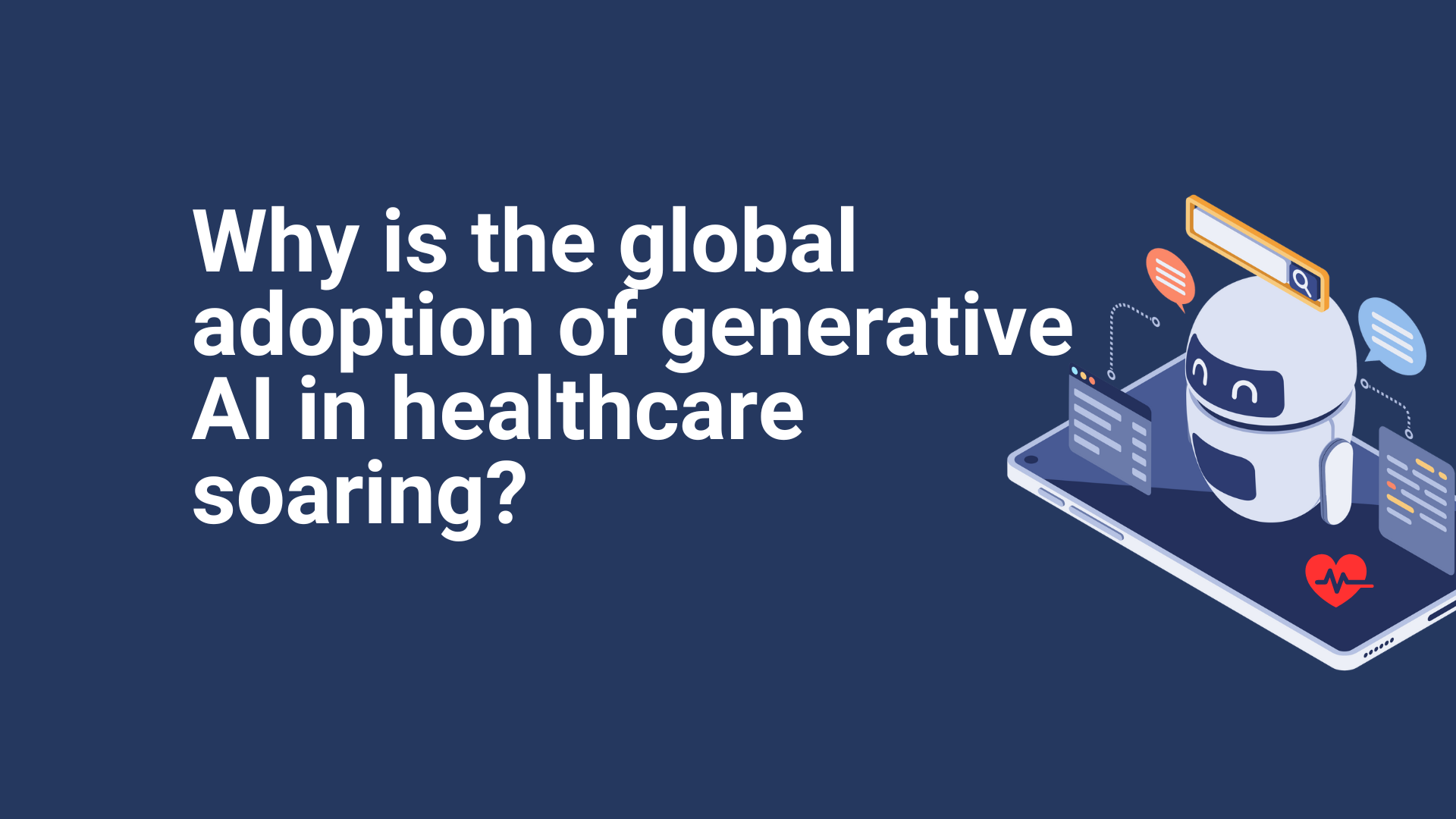How Generative AI Can Help Small Businesses: 4 Practical Use Cases
Think generative AI is only ChatGPT or image generation tools that spit out fantasy artwork? Think again. According to a survey by AWS, 80% of the participants agreed that generative AI will transform business environments in the coming years.
Today, we explore how generative AI can help small businesses. Generative AI’s biggest use cases are improving customer operations, software engineering, marketing, and employee productivity.
Bigwig organizations like AWS, Google, and IBM are already thoroughly ahead in generative AI application development. Tools like Amazon Bedrock and Google Vertex AI make generative AI accessible to small businesses. Teams don’t have the burden of building applications from scratch, and it’s mainly plug-and-play. Let’s look at four real-world use cases of how generative AI can help small businesses.
Core generative AI features
At its core, generative AI is an algorithm that can quickly create targeted human-like content—text, images, code, audio, or video. Unlike legacy AI, which focuses on data classification or prediction, generative AI produces new information learned through a user’s data consumption and engagement patterns.
Here are the core generative AI features.
- It adds context to human language commands.
- It offers alternate solutions and multi-step interactions.
- You can fine-tune the output based on prompts.
- It constantly learns from large datasets regarding output, tone, and structure.
- You can easily embed generative AI algorithms into apps and platforms via APIs.
Generative AI for small businesses: 4 practical use cases
Generative AI can help small businesses by reducing the spending on specialized AI teams. You can now use pre-built tools to launch generative AI projects. It reduces the burden of infrastructure and DevOps overhead and allows organizations to cut costs in model hosting and use APIs, like plugging into electricity.
- Customer support automation
- Automated code generation
- Personalized content at scale
- Internal knowledge assistants
Here are four real-world use cases of how generative AI can help small businesses.
1. Customer Operations: Gen AI-powered agent
How it Works
- Use platforms like Amazon Bedrock to create a conversational bot.
- Integrate the bot into your website, help desk, and mobile app.
- Train the bot with previous FAQs, tickets, and knowledge base.
Benefits
- 24/7 automated availability. Eliminate night-shift agents.
- Shorter response time and consistent answers.
- Use human agents for strategic, high-emotion tasks.
2. Software engineering: Gen AI-assisted code generation and review
How it Works
- Use tools like Amazon CodeWhisperer, a machine learning-based code generator, GitHub Copilot, or integrate an API via Amazon Bedrock.
- Developers then prompt generative AI with tasks like writing code to validate email addresses.
Benefits
- Fast prototypes and reduced time to market.
- Utilize junior developers to write clean, secure code.
- Reduce dependency on costly teams for documentation or debugging.
3. Marketing: Automated content and personalization
How it Works
- Generative AI can help small businesses automate content production, such as campaigns, social media posts, and product descriptions.
- Feed AI models via Amazon Bedrock with campaign goals, brand voice, and keywords.
Benefits:
- Scale content creation without large content teams.
- Build hyper-personalized content at speed.
4. Sales: Improve sales velocity
How it Works:
- Implement a generative AI sales assistant using Amazon Bedrock.
- The generative AI sales assistant pulls lead data from Salesforce and reads old content.
- It uses generative AI via Amazon Bedrock to write high-quality proposals and emails.
Benefits:
- You can save long hours on manual writing
- Reduced sales cycles
Top generative AI challenges for SMBs
Despite the high-value promises of how generative AI can help small businesses, SMBs must address some challenges. For example, while platforms like Amazon Bedrock bring access to powerful models, SMBs must identify relevant use cases, engineer prompts, and use guardrails responsibly. Without these foundational benchmarks, generative AI projects are an expensive experiment that could eventually fail.
Here are some organizational barriers that can hinder your generative AI projects.
- Lack of high-quality data
Generative AI projects need clean, structured data, and most SMBs have unorganized, incomplete data. In this case, poor input can lead to poor output.
- Selecting the correct use cases
Generative AI is very versatile. As a result, many SMBs can end up chasing use cases that don’t solve core problems or target real KPIs. Without a disciplined and strategic approach, organizations risk spending time and money on generative AI experiments that don’t scale or drive value.
- Skills to maintain LLMs
SMBs with access to APIs like Amazon Bedrock will still need skills such as prompt engineering, tuning, etc. Small teams can buy access to generative AI tools but often lack the glue to integrate their internal systems.
- Benchmarks for responsible use
Large language models can also hallucinate. Without filtering and human checks, small businesses risk using generative AI to violate compliance. For example, a chatbot might give incorrect healthcare information or leak pricing terms.
- Weak data infrastructure
Most SMBs lack secure storage or an analytics pipeline. Without a unified document repository, real-time data access, and evaluation, generative AI projects remain limited to writing and designing tasks.
Generative AI: Endless possibilities but with guardrails
Generative AI can help small businesses by eliminating the need for large technical teams or complex infrastructures. From automating customer outreach and internal knowledge assistants, how generative AI can help small businesses is within reach.
In addition, tools to scale generative AI applications make it easier for SMBs to leverage large language models.
However, implementing successful generative AI projects has its fair share of challenges. These include identifying use cases that bring real value and ROI, ensuring data quality, and implementing the right benchmarks to ensure reliable use.
Ultimately, generative AI can help small businesses that start with POCs, solve clear business problems, and grow over time. Generative AI isn’t just a trend, it’s a toolkit for scaling smarter, not harder.
FAQs
What is Amazon Bedrock?
Amazon Bedrock is a platform that allows organizations to build and scale generative AI applications without managing any infrastructure. With Amazon Bedrock, you can access large AI models such as Claude and Llama. It also allows you to build generative AI applications securely and customize models.
How does the generative AI model work?
A generative AI model learns patterns from large datasets through self-supervised learning. During training, these models adjust billions of parameters to predict the next sequence and minimize errors. SMBs use generative AI for writing, designing, coding, and boosting productivity.
Can generative AI be used for inferences?
Yes, organizations can use generative AI to make inferences and draw insights from data. For example, in healthcare, generative AI can help predict treatment outcomes and strategically summarize patient records. In finance, SMBs can use generative AI to analyze earnings calls and generate risk reports.
How can small businesses use generative AI for everyday tasks?
Small businesses can use generative AI to produce customer support responses, build chatbots, and analyze feedback. They can also use generative AI for product development, ideation, writing, or generating legal or financial drafts.











